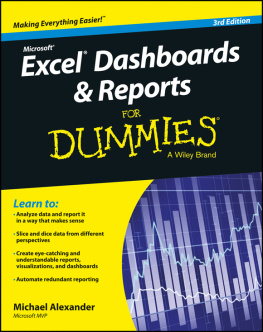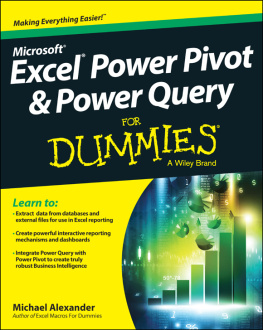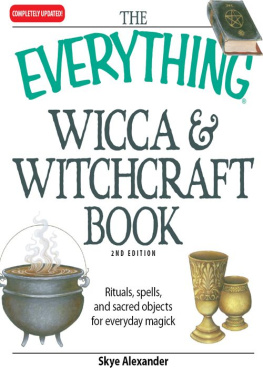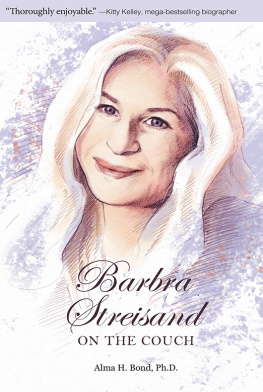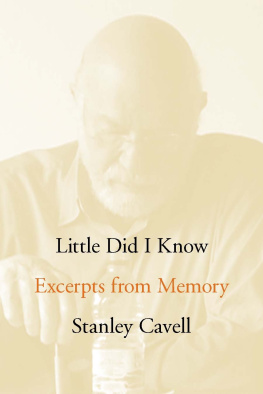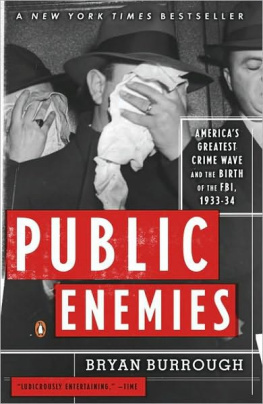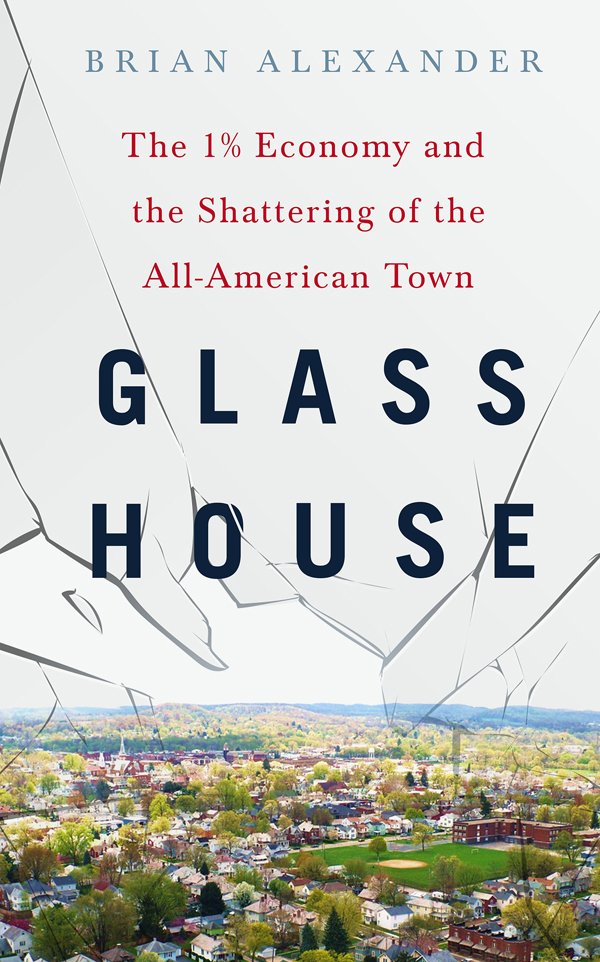Contents
Guide


The author and publisher have provided this e-book to you for your personal use only. You may not make this e-book publicly available in any way. Copyright infringement is against the law. If you believe the copy of this e-book you are reading infringes on the authors copyright, please notify the publisher at: us.macmillanusa.com/piracy.
To the memories of:
Thomas Alexander
immigrant, master tool and die maker
Cleveland, Ohio
Edward E. B. Stern
office boy/sales manager, McKee Glass/Thatcher Glass
Jeannette, Pennsylvania
Robert Alexander
salesman/vice president, Lancaster Glass, independent manufacturers representative
Lancaster, Ohio
Agnes Bobby Alexander
Fairfield Heritage Association, Fairfield County Hospital Twig 3, Miller for Congress co-chairwoman, League of Women Voters, poll worker
Lancaster, Ohio
The nation-state at best is based on the social contract that is also an emotional contract, stamped by the charisma of the past.
SVETLANA BOYM , The Future of Nostalgia
Eric Browns chin trembled. He stopped talking, because if he kept going he was going to cry, and, by God, he wasnt going to cry. But then he dida littleand then I found myself tearing up, too. So there we were, two middle-aged men, a cop and a reporter, sitting in a booth inside the Cherry Street Pub, clearing our throats, dabbing the backs of our fingers to our eyes, hoping nobody would notice.
By now I was used to people fighting the urge to cry. At first I was surprised: The Lancaster, Ohio, I remembered was not a teary sort of place. But in the months before Brown and I sat down together, Id frequently had to pause to let people gather themselves.
A gnarly old union man was the first, when he told me a story about a toolbox his mentor in Anchor Hocking Plant 1 presented to him on the day the senior glassmaker retired. The older man had fashioned the toolbox out of steel, used it for over thirty years, and was now passing it on.
Most others choked up when they struggled to properly explain how much they loved their town. Getting the explanation right was important to them because they felt obliged to defend that love to an outsiderwhich was what I was nowin the face of so many seemingly obvious reasons to leave.
I didnt expect it from Brown, though. Maybe because he was a cop. He said, I felt I carried the weight of this community on my shoulders. Ostensibly, he was referring to his efforts to rid the community of heroinwhich, he was quick to point out, plagued not only Lancaster but every small city from the east side of the Appalachians through Indiana, though Lancaster had somehow gotten the reputation of being heroin heaven, a reputation Brown tended to blame on the reporters who popped down U.S. 33Heroin Highway, as many called itfrom Columbus on slow news days to do ninety-second stand-ups in front of police headquarters.
Brown had run the Fairfield-Hocking Major Crimes Unit. About 90 percent of major crimes in the two counties were somehow connected to drugs. And so, he continued, when you look around our community, all the bad things that are happening seem to be centered around drugs. Man, thats a lotta weight to carry.
For years Brown carried that weight like a Trojan. Well-known by his fellow task force officers and administrators around the state of Ohio, he had earned a reputation for being smart and sophisticated. His peers selected him to go to Washington, D.C., to plead for funding. Yet he sensed hed become cynical.
Cynicism wasnt a natural fit for Brown. Born and raised in Lancaster, he made a name for himself as a star football player at Lancaster High, and he was still a solid guy with a palimpsest of golden-boy looks under the tempering that decades of policing had laid down. After trying big-time college ball, Brown returned to become a local policeman because he wanted to help protect his town. Coming from anybody else, that would sound corny. But for Brown, who could swear if he needed to, Gosh! and My goodness! were the natural defaults. Eventually, he married a Hajost, and so into a prominent local family. (As a teenager, Id suffered through an unrequited crush on another Hajost girl.)
But it was these very hometown bonds that nurtured his cynicism. Hed come to the conclusion that he and his fellow cops could arrest drug users and dealers all day, every day, without making much of a dent in the problems that nagged Lancaster. He wasnt unique in this. After forty years of drug warring, police all over the country were chanting We cant arrest ourselves out of this. Unlike many of his fellow officers, though, Brown understood that the bad things that had so altered his town from the days of his childhood werent really grounded in drugs.
Some in Lancaster didnt notice (or they chose not to notice or refused to accept) just how much the foundation of the town they once knew had crumbled. The few with money could leave to play golf at the Greenbrier, go to the beach on Hilton Head, winter-hibernate in Florida, and still see their town as charming and full of history and nice people. They didnt have to venture across Memorial Drive and into the west side or cross the railroad tracks to the south side. Often, when people did talk about it, heroin and the outsiders who showed up to take advantage of social services provided conveniently simple explanations. Lancaster would go back to normal if only those two problems would go away.
Brown didnt have the luxury of blinders. He saw too clearly that whatever was going on was so much biggerand so much more mysteriousthan anything he could possibly control. It had to do with the economy, of coursewith the decimation of downtown, with the fact that, every morning, Route 33 was packed with cars making the hour commute to Columbus because there werent any good jobs in Lancaster. Sometimes it seemed like the only adult males left during the day were heavily tattooed and skinny, hoodies drawn up over their heads, riding little girls bikes with pink banana seats or walking down Main Street, tugging at their jeans and often accompanied by girlfriends dressed in Hello Kitty pajama pants who pushed strollers. There were so many girls dragging dirty flannel hems across the sidewalks that local cops called Lancaster the pajama pants capital of Ohio. What was he supposed to do about them? There was something in the culture, toonot just of Lancaster, but of America. The parks, a source of local pride, never seemed to have any kids in them. Who was he supposed to arrest for that? And yet, people expected him to do something.
The people from here, roots here: Im arresting them and dealing not only with them, but a distraught parent, distraught grandparents, sister, aunt, uncle. They were not outsiders, but people he knewpeople he grew up with, played football with, saw right then in Cherry Street Pub. Theyd call him up and plead with him to be not just a cop but a counselor, a corrections officer, a judge.
The weight of it, the pressure, wanting to make things right, wanting Lancaster And thats when the chin started. He paused. My mom and dad are still here. My sons here. Hes raising his son here, him and his wife
People can become so frustrated, so discouraged, so mystified about what happened to the communities they love and about what they can do about them, they cant help but cry. Even a cop.



